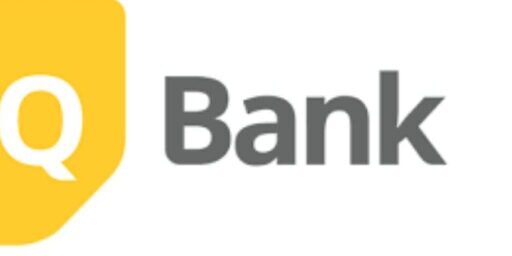Informal In-Trust Accounts
I received an email from Leah the other day asking what are some options for investment accounts for children. Right away, I thought about RESP accounts, however, those aren’t for Leah as they are too restrictive.
I can see the new Tax Free Savings Account (TFSA) being an alternative to the RESP, however, the rules haven’t been set in stone yet. The next best option may be an Informal In-Trust Account (or Informal Trust Account). As I don’t have any real experience with Informal Trust Accounts, here is a basic primer based on some quick research.
The Basics
- An informal in-trust account is an investment account that is opened for a child (beneficiary). Once the beneficiary turns the age of majority (determined by province), the account automatically gets transferred to his/her name.
- These accounts can be opened at most discount brokerages in Canada and can include stocks/ETF’s, bonds, mutual funds, GIC’s or cash.
- These accounts cost much less to setup than a Formal Trust (used in larger balances, inheritances etc).
The Upside
- No contribution limits.
- Anyone can contribute.
- No restrictions on how the beneficiary spends the money (unlike RESP’s).
- Capital gains taxed in the hands of the beneficiary.
- Second generation income (ie. reinvested dividends that produce dividends) taxed in the hands of the beneficiary.
The Downside
- No government matching, thus not ideal for education fund.
- First generation dividends/interest taxed to the contributor.
- The beneficiary will receive the money at the age of majority and can spend it as he/she pleases (regardless of the trustees wishes)
Conclusions
If your thinking about investing on behalf of your child, you need to ask yourself a key question. What is the purpose of the account? If it’s simply an investment account so that the beneficiary will have a future nest egg, then an informal trust account may be a good solution. However, if the purpose of the account is for education, then the Registered Education Savings Plan (RESP) would be a better option as the government gives you free money to top up your contributions.
Disclaimer: Note that this is a very basic primer of Informal In-Trust Accounts. More due diligence is required if you plan on opening this type of investment account for your child. Special tax considerations are required when opening this type of account, please consult an accountant for your specific situation.










I opened an “informal trust” account in 2002 for my son who was born in 1999. I used it to hold and invest Christmas gifts to my son from his grandparents, If the investments in the “informal trust” account are now transferred in-kind to a new account that is solely in my adult son’s name, will that in-kind transfer trigger a deemed sale and lead to taxes owing to the CRA in the current year?
Steve, by the sounds of it, if the new account is still in your son’s name, it should not incur any capital gains tax. However, best to check with an accountant to be sure.
Although in-trust accounts are typically set up for children, this is not a condition. In my case, I act as trustee on behalf of an elder sibling who gained an inheritance that would otherwise negate her partner’s disability pension. The beneficiary can draw a limited amount from the trust per year to offset living expenses, before those pension benefits are clawed back. I believe in such a case, all interest, dividends, and capital gains incurred by the trust are taxed in the hands of the beneficiary. However, I am new to this…
[…] their way paid through university. What about all those wildly successful wealthy individuals with trust funds who’ve never had to […]
what about buying Canada savings bonds for your children in their name? I am thinking of doing this every year for ours.
I set up an In-Trust account for my son 16 years ago. Now he is turning 18. When I asked the Mutual Fund Co. what the procedure was for transferring the account over to his name, they said the units would have to be sold & re-purchased by him (the child), and I (the parent) would be on the hook for 16 years of capital gains. That sounds ridiculous as it defeats the whole purpose of an In Trust account. Can you shed any light here ?
Steve
Hi FT,
An informal trust is just an investment account registered in the name of an adult “in trust for” the child. e.g. Frugal Trader in trust for Mini-Frugal. They are called “ITF” accounts.
Since you need to be 18 to legally own an investment, anyone under 18 needs to have the account in the name of an adult.
There is one error in your article. Income is taxed to the parent. Dividends and interest are taxable to the parent, but capital gains are taxable to the child. Therefore, ITF accounts should focus on earning capital gains.
The account does not automatically change to the child’s name at 18. This is good because how many kids at 18 would be smart with a generous investment account? It is changed when the parent signs to have the name changed. This means the parent can effectively control the account, even when the child is an adult.
Ed
Baillie, to my knowledge, an informal trust can be opened at most discount brokerages without any extra fees etc. A formal trust account however, I believe is a legal entity which requires extra costs.
Disclaimer though, I’ve never opened a trust account before so my knowledge about the subject is limited. Maybe more experienced readers can chime in.
Hi FT,
Your article is very interesting. I was wondering if there are any costs associated with setting up an in-trust account and how much would they be?
Thanks,
Baillie
Informal In-Trust Accounts
Bookmarked your post over at Blog Bookmarker.com!
[…] their advisors about the possibility of establishing trust structures ranging in complexity from informal trusts to full-out family trust incorporating holding companies which owns the corporation which conducts […]